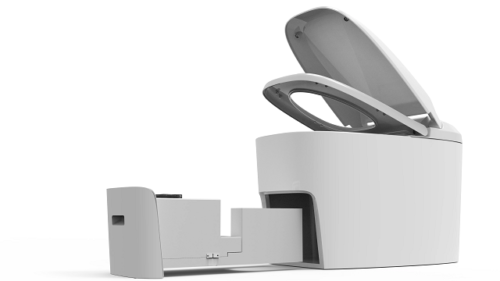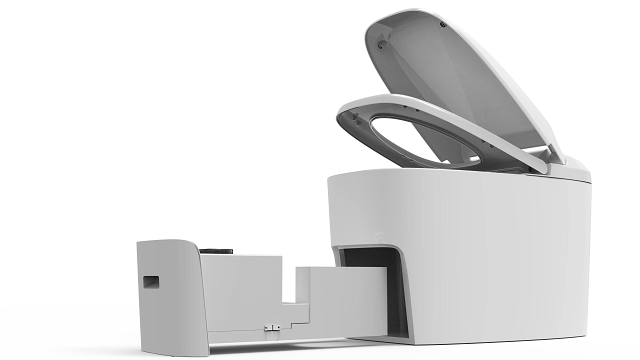
The next step in the “internet of things” may be a toilet that analyzes your waste and sends you notifications on the state of your health.
Geometry Healthtech recently announced the development of a toilet that can reportedly monitor for heart disease and detect symptoms of cancer and diabetes from urine samples.
Michael Lindenmayer, U.S.-based smart sanitation and digital health adviser at Toilet Board Coalition, a business group committed to provide sanitation facilities in the world, told the Nikkei Asian Review such toilets can indeed help to provide health information.
Unlike wearable devices, smart toilets can gather and monitor data without changing users’ habits. They can also read data accurately as they come into contact with human skin.
So called “smart toilets” are under development by companies like Kohler and Google but these are just more advanced versions of their popular (but privacy-destroying) home electronic aids.
Some are looking at this toilet revolution in terms of large scale public health:
Davide Coppola, a project manager at the European Space Agency, or ESA, has an even bigger vision for the smart toilet. He said that if a region has 1,000 smart toilets capable of collecting human body data, it will become possible to monitor the region’s diseases using spatial data and calculate the possibility of diseases spreading.
Through the combination of toilet sensor data and satellite observation data, it will eventually become possible to establish a health information system for the prevention of diseases.
“Medicine is going toward precision medicine and precision health,” said Sanjay Mehrotra, Chief Executive of Memory Chipmaker Micron Technology.
“Imagine smart toilets in the future that will be analyzing human waste in real-time every day. You don’t need to be going to visit a physician every six months. If any sign of disease starts showing up, you’ll be able to catch it much faster because of urine analysis and stool analysis.” he added.
The smart toilet is able to perform, fecal analysis and urine analysis. These are two of the most commonly-used conventional tests to determine the well-being of a patient.
The fecal analysis help diagnose certain conditions affecting the digestive tract and the urine analysis is one major way to find certain illnesses in their earlier stages like Kidney disease, Liver disease, Diabetes.
How long will it be before you are regularly receiving push notifications from your toilet telling you about your diet and your current state of blood pressure or body mass index? Are you ready for such advances?
